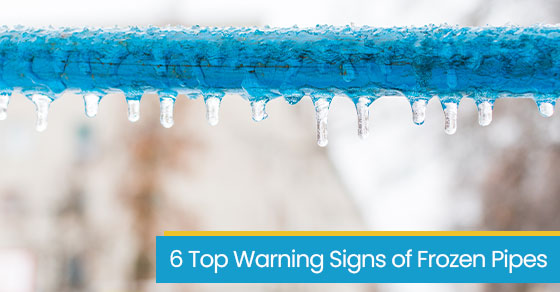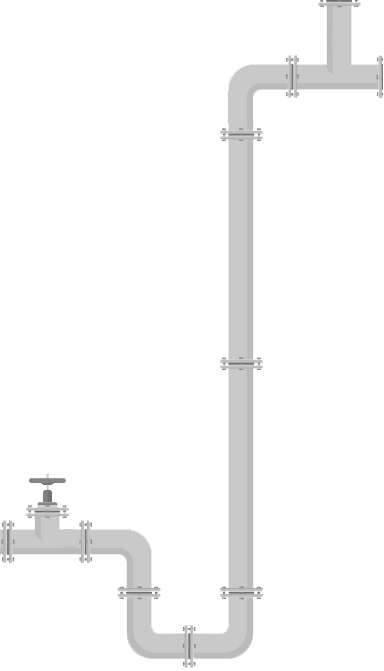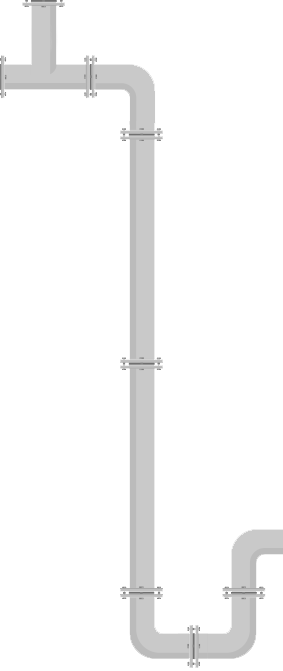6 Top Warning Signs of Frozen Pipes
Posted by Jason Genah on 10-01-2024

It’s widely recognized that plumbing is more susceptible to freezing, cracking, or leaking during colder months.
As temperatures drop across Canada, homeowners must take timely precautions to prevent these issues, which can lead to costly repairs. Hiring a plumber in Toronto to inspect your pipes before winter is a wise precaution.
Pipes located outside the home or within exterior walls are particularly vulnerable to freezing. Homeowners should be vigilant about identifying the telltale signs of frozen pipes.
Before delving into these warning signs, it’s essential to understand why frozen pipes occur. Plumbing pipes can freeze if the temperature remains below 20 degrees Fahrenheit for an extended period.
Furthermore, as water freezes, it expands, exerting even more pressure on the pipes than usual, which can result in cracks or bursts. However, rest assured that if you encounter such an issue, our professional plumbers in Toronto are here to assist you.
Frozen Pipes: What Are The Warning Signs?
Recognizing the signs of frozen pipes is crucial for homeowners. Here are the key warning signals:
1. Low Flow or No Water
The initial sign of frozen pipes is reduced water flow or the absence of water from taps and fixtures. This suggests that a portion or the entire pipe may have frozen, causing insufficient water pressure to reach the faucet.
Complete pipe blockage or cracks leading to leaks are also possibilities. In such cases, contacting a plumber in Toronto is essential for a prompt solution.
2. Frost or Condensation on the Pipes
To determine if your pipes are frozen, start by inspecting them. If you notice a layer of frost or condensation, it’s likely that the pipes are frozen. This is a critical sign homeowners should be aware of, particularly for pipes located in basements, underground, or outdoors.
3. Unusual Odours from Drains
Another common indicator of frozen pipes is the presence of odd or foul smells emanating from drains. These unpleasant odours occur when a section of the pipe freezes, obstructing the flow of water, grease, food waste, and other debris.
The odour may become most noticeable in the room or area where the blocked pipe is located.
4. Bulging Pipes
Another visual indication of frozen pipes is pipe bulging. When water within the pipes freezes, it exerts significant pressure, causing the pipe to bulge
This not only signifies frozen pipes but also suggests that the pipe is at risk of cracking or bursting, necessitating prompt action.
5. Noises from Pipes
Frozen pipes can sometimes produce sounds like gurgling, whistling, or banging, indicating the thawing and movement of ice within the pipe.
While these noises may initially seem harmless, they signify the presence of a frozen blockage in the pipe, making it susceptible to future freezing. Additionally, you may hear unusual sounds from your home’s water heater.
6. Cracked or Burst Pipes
If you detect a cracked or burst pipe, it may be a result of freezing. As mentioned earlier, frozen pipes weaken, and the expanding ice can lead to cracks or bursts.
In such cases, immediate repairs are essential, and we recommend contacting our professional plumbers in Toronto as soon as possible.
Rest assured, there are proactive measures to prevent the pipes in your home from freezing.
How To Prevent Frozen Pipes
Proper insulation is crucial for exposed pipes or those running through unheated areas. Insulating water pipes with sleeve-type insulation will prevent them from reaching freezing temperatures. Be sure to add insulation to vulnerable areas of your home.
While your pipes and water may still get cold, you won’t have to worry about freezing and bursting.
Draining pipes before winter sets in is essential if you have a sprinkler system or a pool/jacuzzi. As temperatures drop, residual water in these pipes can freeze and potentially cause damage. You can perform this task yourself, but for peace of mind, contact our Toronto plumbers.
A more tactical way of preventing frozen pipes is the use of heating cables. These cables are affixed to the pipes and equipped with integrated thermostats. Rest assured, they won’t heat your water; they solely provide the warmth needed to prevent freezing. The system activates automatically when temperatures approach freezing.
Regular maintenance can also help prevent frozen pipes or mitigate potential damage. Inspect exposed pipes in your garage or beneath sinks to determine if they require insulation or protection. Additionally, allowing water to drip from faucets connected to exposed pipes on colder days, especially in locations experiencing extended below-freezing temperatures, can be effective.
Remember to remove outside hoses and store them in insulated locations or areas not subject to freezing temperatures. Left outside, they become susceptible to freezing and snow accumulation.
If a specific area of your home frequently experiences frozen pipes, consider consulting our professional plumbers in Toronto to reroute those pipes. They will ensure that the work is in accordance with local building codes and provide expert guidance on the relocation process.
Plumber Toronto: Final Thoughts on Frozen Pipes
Frozen pipes can lead to costly repairs, but homeowners can take precautionary measures before the winter season to avoid these problems. For any plumbing concerns or questions, don’t hesitate to reach out to our experienced Toronto plumbers.
For more information about preventing or fixing frozen pipes, call Drain King Plumbers at 416-661-5464 or contact us here.




